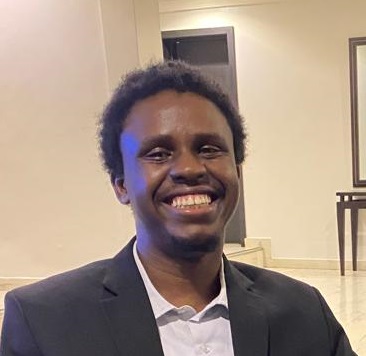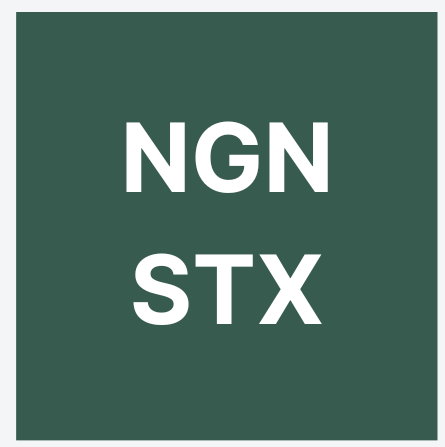“Kindly give the Zenith offer consideration towards final resolution of this matter” and “not to go back to court … as we have an imminent resolution.”
These words from Dr. Ambrosie Bryant Chukwueloka Orjiako, the medical doctor turned oil mogul, encapsulates one of the most fascinating near-misses in Nigerian corporate legal history. In a London courtroom in 2016, Shebah Exploration & Production Company Limited was this close to escaping a $150 million debt through an audacious legal gambit that almost worked.1
The story begins on July 1, 2011, when the African Export-Import Bank (Afrexim), Diamond Bank Plc., and Skye Bank Plc. facilitated a $150 million syndicated loan to Shebah Exploration & Production Company Limited. Each bank contributed $50 million to provide Shebah a working capital for a work-over programme to stimulate production at oil wells in the Ukpokiti offshore oil field in Nigeria, where Shebah held 80% revenue interest. The loan was initially set at $100 million and later increased to $150 million on May 11, 2012.
Shebah, a subsidiary of what would later become Nigeria’s oil giant SEPLAT Energy, paid only $6,111,111.11 in June 2012. That single payment would be all the banks ever received.
Despite the syndicates gracefully agreeing to defer several installments, Shebah failed to meet any further repayment obligations. The banks grew frustrated and accelerated repayment of the entire debt and made demands on the guarantors: Allenne Limited and Dr. Orjiako himself, who had provided personal guarantees.

Gobe!
What followed was a peculiar choreography of broken promises. Three times, on the very days summary judgment hearings were scheduled, Shebah would suddenly agree to pay substantial sums and request adjournments of no more than 60 days to secure alternative financing. On October 3, 2014, as the original hearing approached, Shebah promised $50 million by December 2, 2014. No payment materialized. The pattern repeated: grand promises, agreed adjournments, and ultimately, silence.
Each time, the courts granted extensions in good faith, only to be disappointed. Imagine that friend of yours who keeps promising long stretches of dates to pay you back, only to give you another excuse or delay.
Chest!
Then came Shebah’s most audacious move. In 2015, abandoning their previous conciliatory stance, the defendants suddenly claimed the banks had no valid claim whatsoever. (As how now?) Their defense was built on a sophisticated legal argument centered on the Unfair Contract Terms Act 1977 (UCTA), specifically Section 3, which governs dealings on “written standard terms of business.”
The defendants argued that the facility agreement constituted the claimants’ written standard terms of business, which would have subjected the banks’ set-off exclusion clauses to a test of reasonableness. If successful, this would have allowed Shebah to set off their counterclaims against the debt, potentially wiping out their liability entirely.
Their counterclaims were substantial: $137.1 million against Afrexim for allegedly arranging the loan in a “dilatory” fashion, causing wasted expenditure and lost revenue; $31.2 million against Diamond Bank for allegedly breaching an agreement to cap a previous loan at $60 million; and a staggering $830 million claim based on an alleged May 16, 2014 agreement not to commence proceedings.
Last card!
The crux of Shebah’s argument lay in proving that the banks habitually used the Loan Market Association (LMA) form as their standard terms without meaningful negotiation. The LMA form is an industry-standard template designed to balance borrower and lender interests, explicitly described as requiring amendments and additions.
The defendants’ counsel, Richard Gillis QC, conceded he couldn’t demonstrate that the banks habitually contracted on the LMA form without negotiating. Instead, he argued that disclosure might reveal such a pattern, pointing to the banks’ alleged rejection of all substantive changes proposed by Shebah’s solicitors, Winston & Strawn LLP.

Zenith’s cellotape
Zenith Bank saw Shebah’s situation and approved a $250 million loan facility aimed at salvaging the project. The proposal included a $50 million payment to the existing consortium of lenders to reduce their exposure, while increasing the total facility to $350 million. Under this arrangement, Zenith would lead the syndicate with $250 million, and the existing lenders would reduce their combined exposure to $100 million, approximately $33 million each. Additionally, Zenith requested a nine-month moratorium on principal repayments and an extension of the loan tenure to five years to ease Shebah’s cash flow and facilitate repayment.
Shebah forwarded Zenith’s offer to the syndicate in May 2014, and Dr. Ambrosie Orjiako flew to London to discuss the proposal with then Executive Vice President of Afrexim, Dr. Benedict Oramah. According to Dr. Orjiako, there was an understanding that the Zenith offer would be acceptable to the lenders if certain amendments were made, and that litigation could be avoided if the parties agreed.
However, on the same day, Afrexim, acting on behalf of the syndicate, formally rejected Zenith’s proposal, citing objections to Zenith leading the syndicate and reluctance to extend the loan tenure. The syndicate maintained its position and proceeded to initiate legal proceedings to recover the loan.
Subsequent correspondence from Dr. Orjiako urged the lenders to reconsider the Zenith offer and avoid returning to court, describing the proposal as an imminent resolution. Despite these efforts, the lenders did not accept the offer, and the litigation continued.
Had the syndicate accepted Zenith Bank’s offer, the restructuring could have potentially reduced the lenders’ exposure and provided Shebah with additional funds to commercialize associated gas and enhance oil production.
The Court’s Verdict
No long story. Mr. Justice Phillips systematically dismantled this defense. Shebah has to pay up!

So, Where the Hell Is All That Money?
The ultimate fate of the $150 million remains a stark reminder of the venture’s failure. The funds were intended to revitalize production at the Ukpokiti oil field, where Shebah operated through the Trinity Spirit floating production, storage and offloading vessel. The field, which had produced around 7,000 barrels per day five years before the case, saw production steadily decline to zero by 2020.
In a tragic epilogue to this financial drama, the Trinity Spirit FPSO exploded and caught fire in February 2022. The 46-year-old vessel, with a capacity to process 22,000 barrels per day and store 2 million barrels of oil, was destroyed in an incident that sadly claimed a number of lives.
The Players Today
Before Dr. Orjiako, who stepped down as SEPLAT chairman in May 2022 after 13 years at the helm, had built his empire from his medical practice origins. The orthopedic surgeon turned oil entrepreneur co-founded SEPLAT in 2009 through a partnership between his Shebah Exploration and Platform Petroleum. Under his leadership, SEPLAT became the first Nigerian company to list on both the Nigerian and London stock exchanges.
Our mailing list and WhatsApp tells you where your money should be.
Today, SEPLAT Energy has transformed into Nigeria’s leading independent energy company. In December 2024, it completed a transformational $1.28 billion acquisition of ExxonMobil’s Nigerian onshore assets, more than doubling its production capacity. The company now produces over 131,000 barrels of oil equivalent per day and targets reaching 200,000 barrels per day.
Skye Bank was taken over by the central bank and became Polaris Bank in 2018. We know Diamond Bank no longer exists as an independent entity. In 2019, it was acquired by Access Bank in a merger that created Africa’s largest retail bank by customer base. The merger was completed for a consideration of ₦3.13 per Diamond Bank share, representing a 260% premium to its closing market price.
Afrexim, the lead arranger of the failed facility, continues as a major African development finance institution, successfully raising hundreds of millions in syndicated loans for trade finance and corporate purposes.
The judge, then Mr. Justice Phillips is now Lord Justice Phillips and got nominated Judge of the Financial List for his savviness in banking and financial law. He was appointed a Lord Justice of Appeal on 13 January 2020.
Benedict Oraama went on to be the President and Chairman of the board, Afreximbank In 2025. He also won African Banker of the year in 2017 and 2022. Prof. Benedict Oramah, President and Chairman of the board, Afreximbank and was conferred Grand Commander of the Order of the Niger (GCON) last month.

Moral of the story.
The case stands as a reminder that in the high-stakes world of syndicated lending, sophisticated legal arguments can delay but rarely defeat the fundamental principle that debts must be repaid. For SEPLAT, the ultimate irony is that while Shebah nearly escaped its $150 million burden through legal maneuvering, the parent company has since grown into a billion-dollar enterprise that recently paid $1.28 billion cash for a single acquisition.
My personal takeaway is rather unconventional. I don’t hold SEPLAT in my portfolio, but I can only imagine how many investors would flee the moment a publicly listed company loses a major court case (just like we recently saw with a bank that had a court and media drama). Although SEPLAT was not publicly listed when that incident occurred, the truth remains: investors who hold through the chaos often end up winning big. A decade later, I also ask myself if the banks really won.
In the end, Orjiako’s desperate plea for “final resolution” through Zenith Bank’s refinancing offer proved to be exactly what it appeared: the last gambit of a borrower who had run out of both money and time.
1 Here’s a copy of the case summary this essay is based on.

28. Investing profitably in Nigerian and foreign stocks since 2020, Daniel is currently a final level student at the Chartered Institute of Stockbrokers. Outside of finance, Daniel is the founder of Space Bar Africa. He has worked in IT for fintech and military engineering companies.


